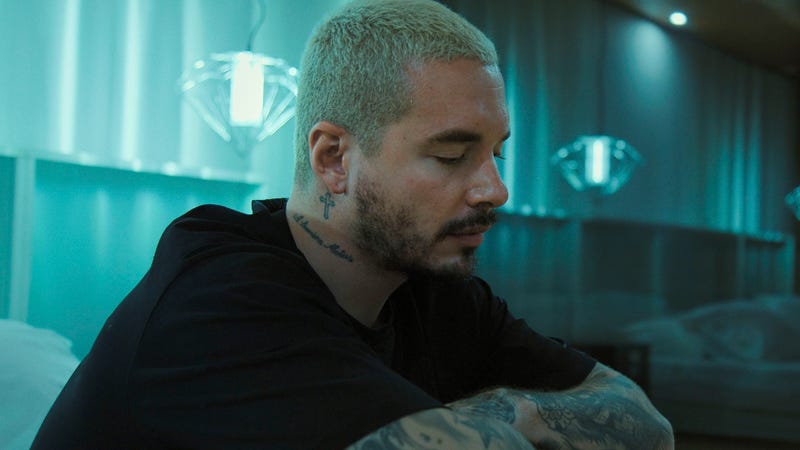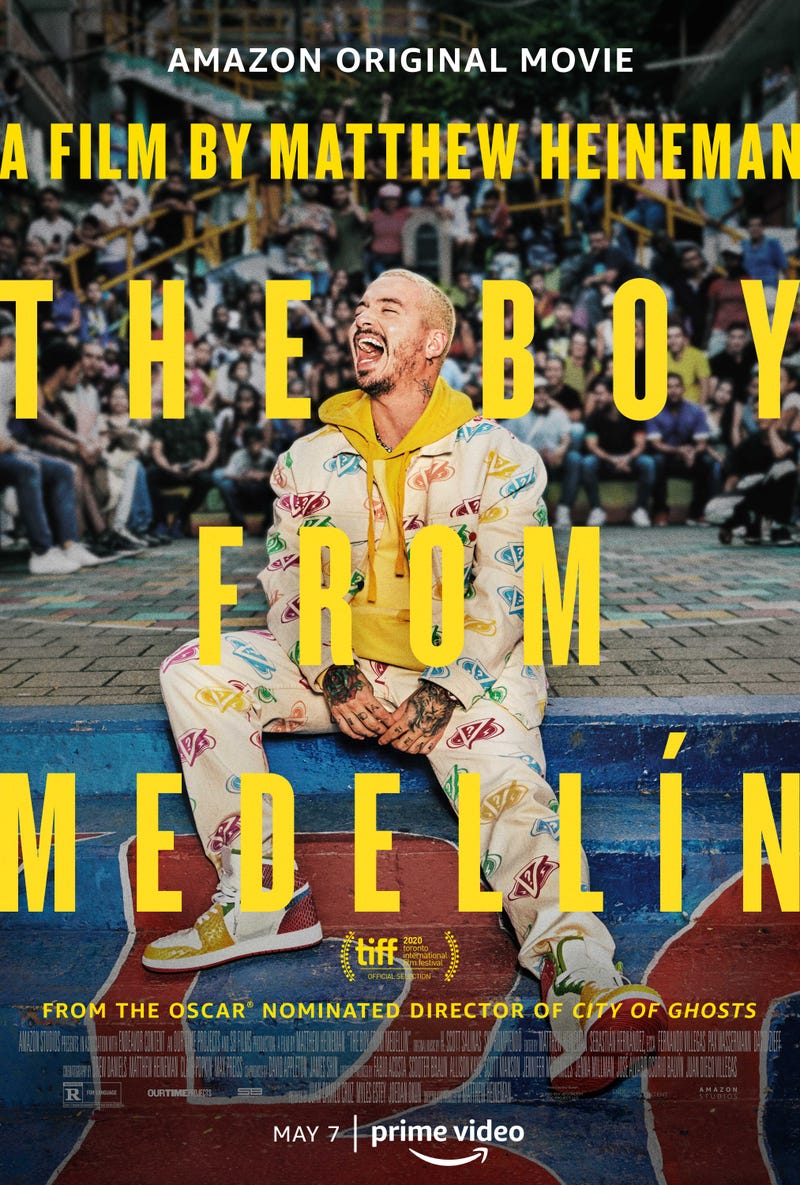
In November of 2019, José Álvaro Osorio Balvin, known around the world as J Balvin, was days away from making one of his childhood dreams a reality: performing in front of a sold-out crowd at the stadium in his hometown.
But protests against the government of Colombian president Iván Duque forced the reggaetón star to grapple with his role as an artist and reconcile it with the responsibilities attached to having such a large platform, triggering his mental health struggles, something that the Amazon Prime documentary “The Boy from Medellín” explores in detail.
The documentary directed by Matthew Heineman, which premieres May 7 on the streaming platform, provides an intimate look into the lives of one of the world’s biggest Latin artists, particularly his mental health.
Over the past several years, Balvin has spoken openly about his mental health, sharing with his fans how depression and anxiety have impacted his life.
At the beginning of his career, Balvin moved to the United States to try to make it as a musician. By day he worked as a painter, and at night he would perform in small shows, trying to balance his life with his dreams. “But the reality of life in Miami as an immigrant was hard, really really hard,” he says in the doc, and leading that double life triggered his first bout of depression.
“Depression is hell, it’s stronger than you. Nothing makes sense, I even thought about killing myself,” shared Balvin in the documentary. It has followed him as he has reached international fame and success, with the musician stating that “the tension between José and J Balvin contributed to my anxiety and my pain and my depression. I went to hell really young because I wanted to be someone else.”

In a press conference prior to the release of the documentary, Balvin said that he feels a responsibility to speak openly about mental health. “As an artist I have a big platform that I can spread the word. There might be a lot of people suffering right now and they don’t even know what they have. If I can give them some light to their darkness, why not?”
Both in the documentary and in the press conference, Balvin referenced “El Cantante” by Héctor Lavoe, citing it as an example of the juxtaposition between his public persona, which is all about joy and music and color, and his life as José, an individual who is far more muted and introspective than he appears on stage.
The song by the legendary salsa artist is an autobiographical story about feeling lost because of all that his fans need from him. “I am the singer, popular wherever I go, but when the show is over, I’m a human like everybody else,” say the lyrics in Spanish, something that Balvin sees reflected in his own ability to turn off his feelings and separate his private and public selves while performing.
“When I was a kid I used to listen to ‘El Cantante’ and I was just vibing to it, but then I grew up and just started checking the lyrics and it was part of my history,” he shared. “It was definitely my personal anthem. Sometimes people don’t ask you if I cry, or if I’m mad or if I’m sad or if I’m going through a bad moment, they’re just like ‘give me, give me, give me, give me, give me.’”
“Today in the morning my girl is like ‘OK is it J Balvin or is it José? Who am I talking to?’ so it’s still tough,” he shared.
Stream “The Boy from Medellín” on Amazon Prime starting May 7.
Audacy may earn commission for products purchased via affiliate links.
Lights, camera, action! Get the latest updates on movies and television from The Reel Buzz on Audacy.
Audacy's I’m Listening initiative aims to encourage those who are dealing with mental health issues to understand they are not alone. If you or anyone you know is struggling with depression or anxiety, know that someone is always there. Additionally, the National Suicide Prevention Lifeline is available 24 hours a day, 7 days a week at 1-800-273-8255.